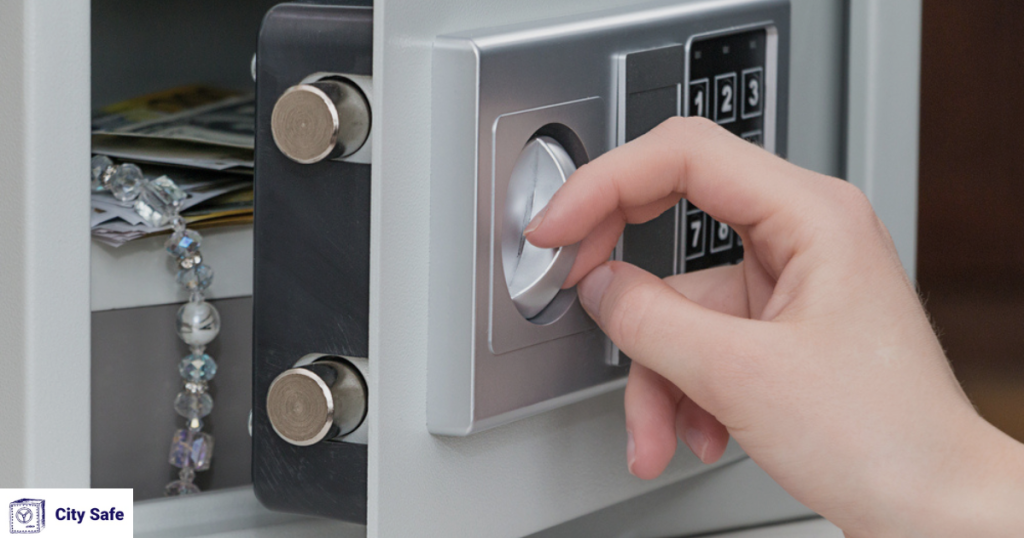

In a world where security is paramount, safes provide an essential layer of protection for valuables, important documents, and sensitive information. However, there are times when access to these secured treasures can be unexpectedly denied due to lockouts. Understanding the common causes of emergency safe lockouts and implementing preventative measures can save you time, stress, and money. In this blog post, we will explore the typical reasons for lockouts and offer practical solutions to avoid them.
One of the most frequent causes of safe lockouts is simply forgetting the combination or misplacing the key. It’s easy to lose track of a combination, especially if you haven’t accessed the safe in a while. The same goes for physical keys—how many times have you misplaced your house keys? The frustration can be compounded when the items inside the safe are urgently needed.
For electronic safes, low battery power is a common culprit for lockouts. Most electronic safes will lock out users once the battery is critically low, which can happen unexpectedly. If you rely on an electronic lock without regular checks, you may find yourself unable to open the safe when you need it the most.
Mechanical safes are not immune to issues, either. Over time, wear and tear can lead to mechanical failure. Components such as the lock, dial, or gears may malfunction, preventing the safe from opening. Regular use and lack of maintenance can exacerbate these issues.
Environmental conditions can significantly impact the functioning of a safe. High humidity can cause internal rusting, while extreme temperatures can affect electronic components. Safes are designed to withstand certain conditions, but long-term exposure to adverse environments can lead to problems that may result in lockouts.
Many electronic safes have security measures in place that lock users out after multiple incorrect attempts to enter a combination. While this feature protects your valuables from unauthorized access, it can also become a source of frustration if you mistakenly enter the wrong combination a few times.
Accidental drops, bumps, or mishandling can physically damage a safe, causing the locking mechanism to jam or malfunction. This is especially true for portable safes, which may be moved around more frequently than stationary models.
For electronic safes, sudden power outages can be problematic. If the safe relies on power to function and you experience a power failure, you may be unable to access your belongings until power is restored or until a backup power solution is implemented.
One of the simplest ways to avoid forgetting a combination or losing a key is to keep a secure record of it. Write down your safe’s combination and store it in a secure location separate from the safe itself. Consider using a fireproof and waterproof box or a secure digital password manager. Ensure that trusted family members or associates know where this information is stored in case of emergencies.
Like any piece of machinery, safes require regular maintenance to function properly. Periodically check your safe for any signs of wear and tear. For mechanical safes, make sure the locking mechanism operates smoothly. For electronic safes, test the keypad and replace batteries before they run low. Regular maintenance can help prevent malfunctions that could lead to lockouts.
For electronic safes, replace the batteries on a predetermined schedule—ideally every six months or before significant life events (e.g., moving houses, major purchases). This proactive approach will help you avoid low battery-related lockouts and ensure that your safe remains functional when you need it.
Consider the environment in which your safe is placed. If possible, store it in a climate-controlled area to minimize exposure to extreme temperatures and humidity. If your safe is in a basement or attic, consider using a dehumidifier or air conditioner to maintain stable conditions.
When it comes to safes, quality matters. Investing in a reputable brand with a solid warranty can reduce the likelihood of mechanical failures. Look for safes that offer additional features, such as backup key access or dual locking mechanisms for extra security and peace of mind.
When accessing your safe, avoid rushing through the process. Take your time to enter the combination accurately. If you’re in a hurry, it’s easy to make mistakes that can lead to lockouts. If you find yourself repeatedly struggling to remember the combination, consider using mnemonic devices or other memory aids.
Having a backup access method can be invaluable. If your safe allows for it, consider keeping a physical key in a secure location or using a biometric access method (like a fingerprint scanner) if available. This redundancy can save you from being locked out in emergencies.
If other people need access to the safe, ensure they know how to operate it. Teach them the combination and any other necessary procedures. This way, if you’re not around, they can access the safe without causing a lockout.
Emergency safe lockouts can be avoided with a bit of foresight and diligence. By understanding the common causes and taking proactive steps to mitigate them, you can ensure that your safe remains a reliable protector of your valuables. Regular maintenance, secure record-keeping, and quality investments will go a long way in preventing lockouts and ensuring peace of mind in your home or office. Remember, preparation is key; don’t wait for a lockout to happen before you take action! For expert assistance in safe maintenance and installation, trust City Safe your reliable partner in securing your valuables and preventing lockouts.
“When my safe with many important documents in it wouldn’t open, I got anxious and googled several different ways… Left a couple messages and never heard anything back. Then I found City Safe – they came the same day. They completely fixed everything!!! City Safe rescued us! Thanks so much!”

“They completed the lock replacements and repair fast! So happy I worked with them! The price is great! Very reasonable! Will use them again in the future!”

“Responded to my call right away! Thank goodness for you guys! Didn’t know I needed repair on my locks and that they needed maintenance every now and then! They provided a professional and good value service and I got a consultation for free. Do not hesitate to work with them!”

“Got locked out of my jewelry safe, it wouldn’t open and it made so anxious! Called City Safe and I am so glad that they respond immediately! They saved the day and recommended me some maintenance methods. Beyond grateful! Highly recommend!”

“They completed my repair and maintenance so fast! Didn’t expect that! So glad I worked with experts! Very reasonable price too! Thanks guys!”

“Woah! I didn’t know my safe needed repair that’s why I got locked out! I knew I had to properly maintain it but I didn’t know how and the guys from City Safe helped me out, a lot! They provide professional and good value service! You also get a consultation for free!!! Would recommend to family and friends! ☺”

“Got so worried how to move my safe without damaging my floor! I didn’t want to pay for the damage! City Safe saved the day and helped me all throughout the entire process. Beyond grateful for this! Recommended you guys to my family and friends!”

“I planned to move out but didn’t know what to do with the safe I have. It’s large so I was not certain of the process of moving. I called City Safe and they were glad to help! So thankful for them! No damages and I was able to transfer it to a recommended area in my new place!”

“ They provide professional and good value service! You also get a consultation for free!!! Would recommend to family and friends!”

“After losing my keys right sometime recently my greatest assembly of the year, I thought it was the conclusion of the world. I looked for a Locksmith in New York and called City Secure instantly. Realizing my crisis, a locksmith arrived in less than 30 minutes and was able to grant me about quick get to my supplies. I was so inspired by the incite benefit that I called them back after my assembly to supplant the locks at my office. Predominant, incite and dependable benefit earned my trade for life!”

“Changed keys and locks again for security purposes. City Safe always sends technicians that are super knowledgeable, and most importantly, honest and reliable!”

“Clear, concise explanation of the system and provided helpful tips for its maintenance as well. Will highly recommend this team!”











Provided to all neighborhoods in New York.
We will make sure you are happy with our service
On all safes sold. City Safe provides a warranty for all service
We will ship your safe to almost every state